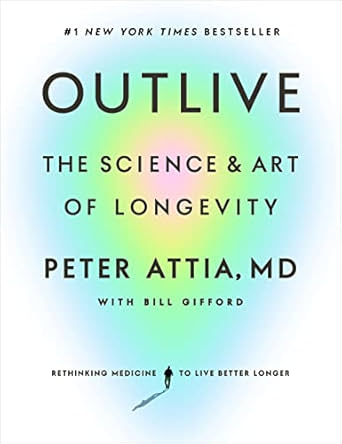What Is Health? And Why Does Is Matter For My Retirement Plans?
May 13, 2025Health means many different things to different people. Depending on your individual perspective, background, and aspirations, your definition of health could range from the ability to perform at elite athletic levels to being able to get out of a chair without assistance. At its core, health encompasses physical, mental, and social well-being, but the ways in which people interpret and strive for health are as diverse as humanity itself.
The World Health Organization (WHO) defines health as "a state of complete physical, mental, and social well-being, and not merely the absence of disease or infirmity." This holistic view emphasizes that health is not just about the absence of illness, but rather a multidimensional state of overall well-being, which becomes particularly significant in planning out your future life.
Let’s get something important out of the way: “absence of disease or infirmity” may not be the be-all and end-all of health, but once you are infirm, getting better tends to dominate your health-decision making. This means there is a non-trivial element of luck involved. Avoiding getting sick in such a way that it impacts your life-long health is not entirely under your control. While there may be ample evidence that living a “healthy lifestyle” from a young age may help to ward off disease, this is not always the case. But even if you are unlucky and do get sick, that healthy lifestyle may help keep your declining physical abilities from getting in the way of continuing to live an enjoyable life.
Throughout life, once we take illness out of the equation, health is often measured by physical fitness: the ability to perform daily physical tasks at a high level and without pain, and the resilience to recover from injury or illnesses.
At various times, our expectations for what it means to be physically fit can shift. The 16-year-old who spends hours each day working out to make the varsity team may be content with the stamina to play an hour of pick-up ball once a week in his 30s, and the ability to play in a parent-child game in his 40s or 50s. I know this well – I myself was a competitive high school swimmer, and then discovered cycling and triathlon in my 20s, CrossFit in my late 30s, and snowboarding in a somewhat vain effort to keep up with my son in my 40s. Now in my 50s, I still do many of these things, but at a slower pace and lower intensity.
In his book, Outlive, Dr. Peter Attia, a leading voice in the field of longevity and health, introduces his concept of the "Centenarian Olympics." This idea revolves around preparing oneself for the physical challenges that one might face in later years, aiming to maintain the strength, mobility, and en durance necessary to live a high-quality life as one ages. Attia emphasizes proactive measures such as strength training, cardiovascular exercise, and flexibility routines to ensure that individuals can perform essential tasks like lifting groceries or getting up from a chair well into their older years.
durance necessary to live a high-quality life as one ages. Attia emphasizes proactive measures such as strength training, cardiovascular exercise, and flexibility routines to ensure that individuals can perform essential tasks like lifting groceries or getting up from a chair well into their older years.
Innovative new approaches to maintaining health are emerging, emphasizing injury prevention, active lifestyle, and holistic management of health above pure athletic performance. My old friend and former trainer Dr. Sean Pastuch has devoted his professional life in recent years to exploring the idea that the exercise studio is really a first-line health clinic – and is often a much better place to go to get out of and stay out of pain than an orthopedist’s office. While many people consider the exercise studio – or the gym – as the place that they go to get stronger, Sean challenges that viewpoint by positing that "[t]he goal is not just to move better but to live better. By understanding the root causes of pain and addressing them effectively, we can empower individuals to reclaim their health and enhance their quality of life." This methodology underscores that health is not only about managing symptoms but also about fostering an environment where pain and disability is less likely to occur.
Dr. Attia's concept of the Centenarian Olympics aligns with this approach, encouraging individuals to think long-term about their physical abilities and actively work towards maintaining them. By focusing on preventing injury and sustaining health over the long-term, both Attia and Pastuch contribute to a broader understanding of what it means to be healthy in retirement.
What Does Any of This Have to Do with Retirement Planning?
There are several ways to answer this question. The most obvious is that if you are not healthy enough to reach retirement, you have no need for a retirement plan – either because you will be dead, or you will need to implement your plan for disability well before you retire (a much longer discussion I will save for a later article). Equally troubling is the scenario where someone has worked hard their entire life, diligently saving for their future retirement, only to suffer a health setback that either leads to them being physically unable to enjoy all the things they planned to do in retirement or spending all of their hard-earned wealth on medical care rather than their life’s dreams.
However, health and retirement planning have an important attribute in common: both your health and your financial plans are an area of your life where small changes, implemented continuously over long periods of time, can have enormous benefits. If you start investing for retirement at age 25, you will likely be way ahead of someone who doesn’t start until they are 55. Similarly, someone who leads an active and healthy lifestyle starting when young will likely find it easier to maintain their health into old age than someone who joins a gym for the first time at age 55.
It is also true that when it comes to both your health and your retirement plans, it is never too late to start. You can never go back in time and save more, or exercise more. But you can start today, and those dollars you add to your bank account, and the work you do with your body, will likely pay dividends for many years to come.
I hope that this blog will inspire you to do both!


